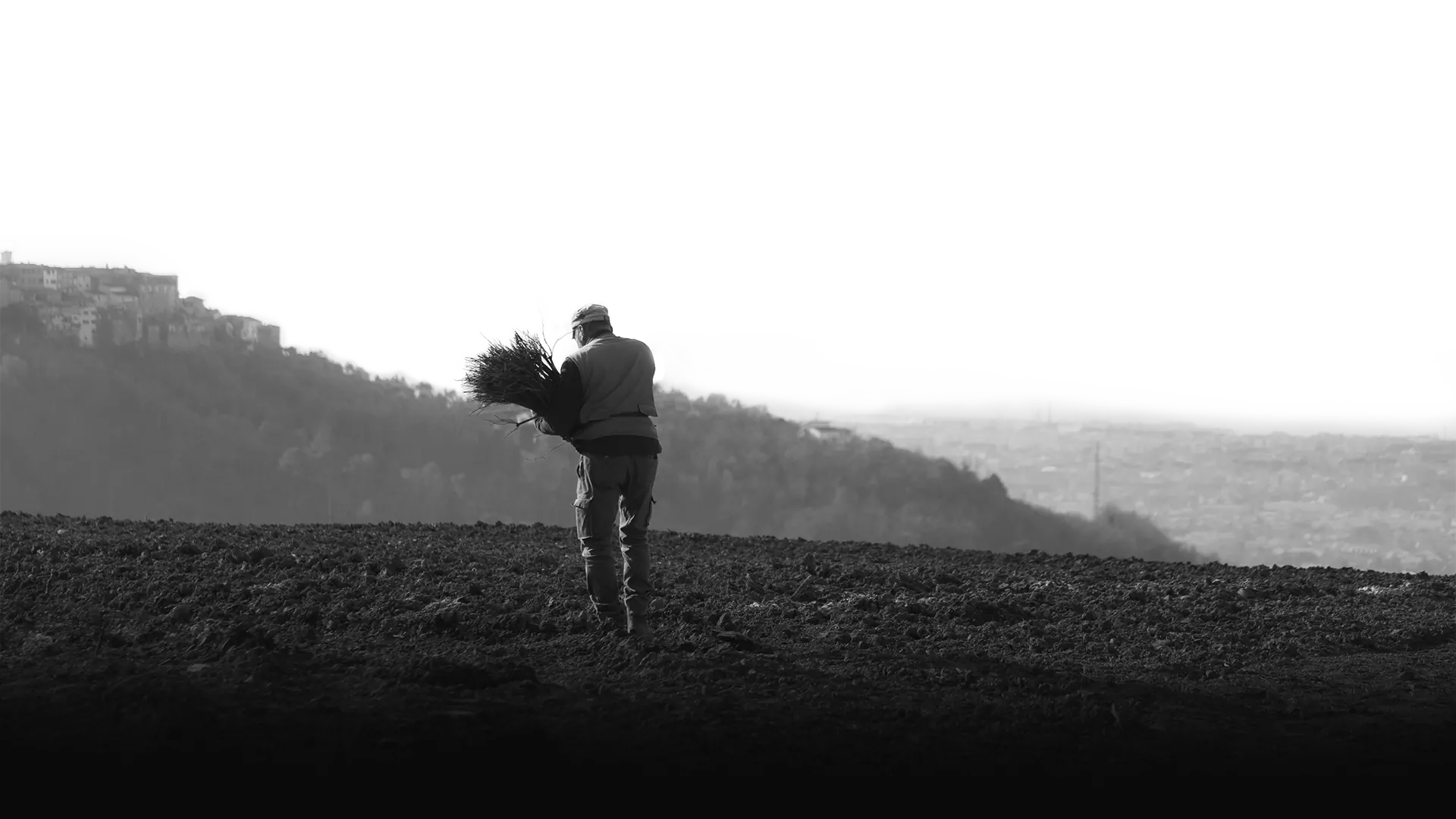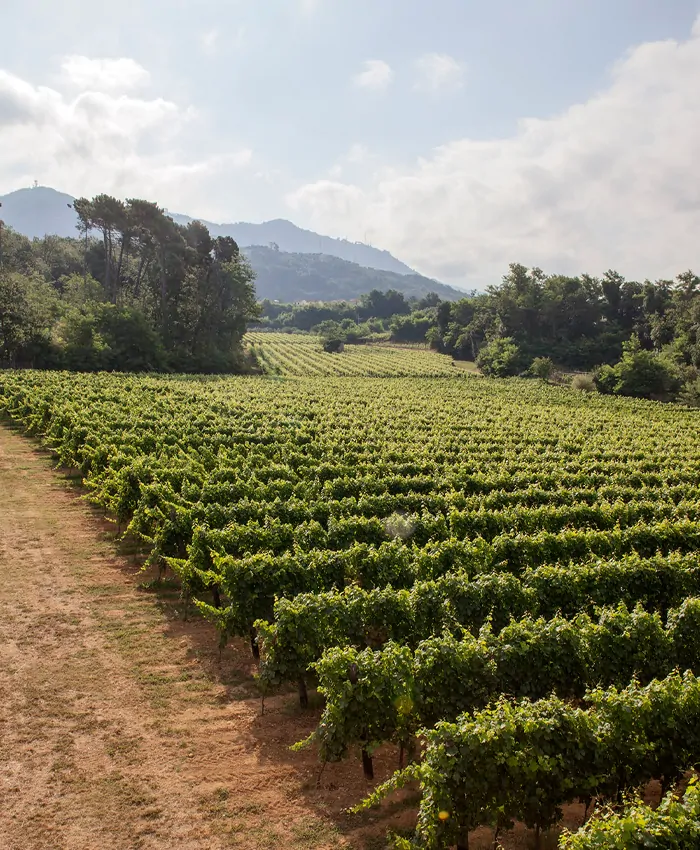
We preserve
We preserve the essence of our territory, so that it can express itself with authenticity.
Between the sea and the mountains, an oasis of vines
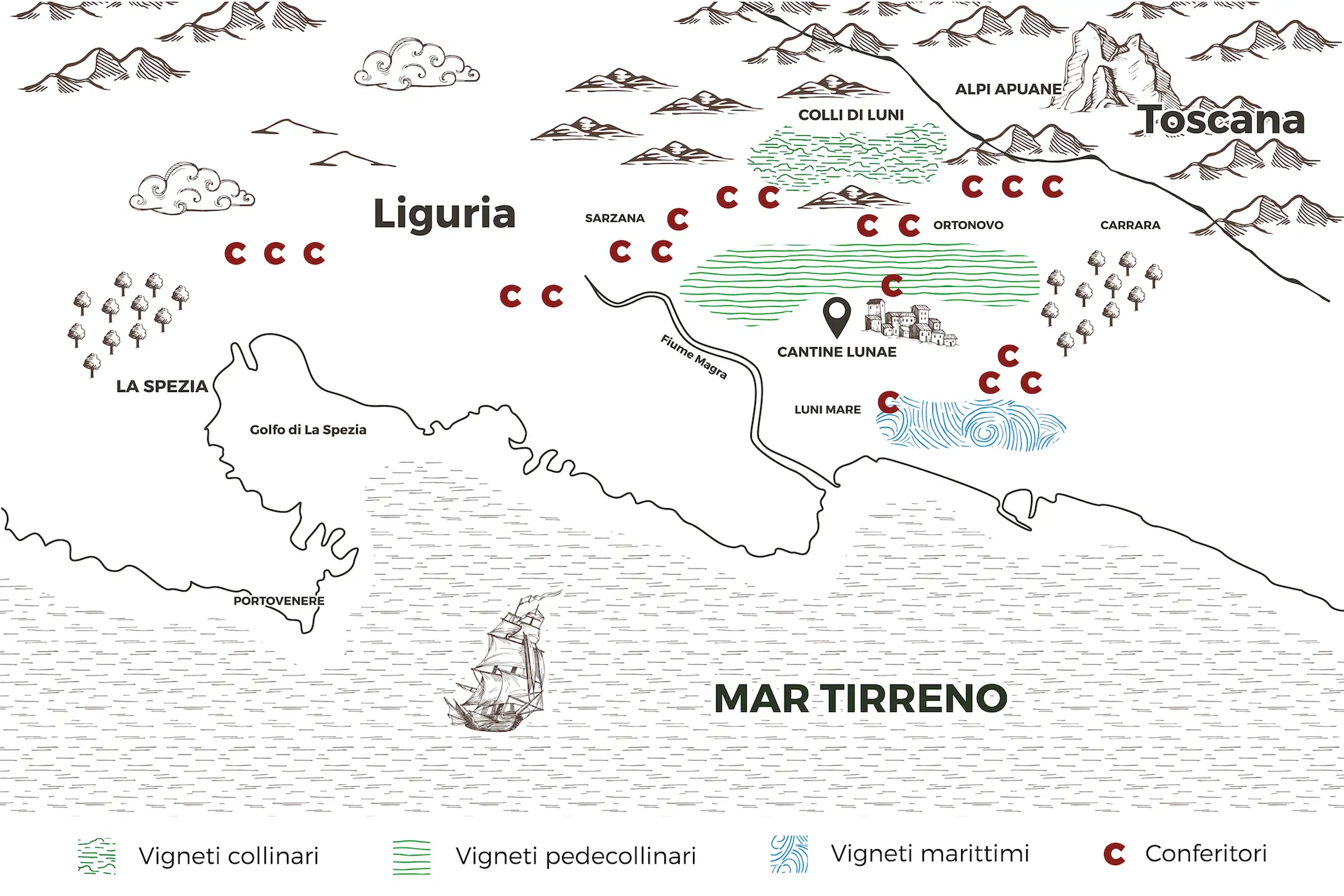
One territory, many perspectives
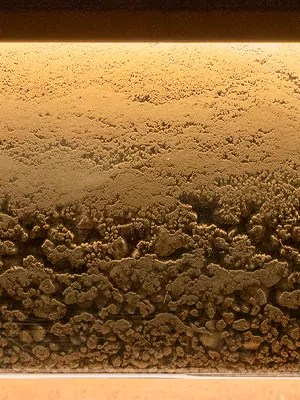
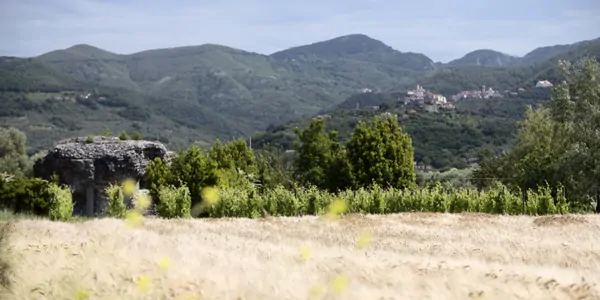
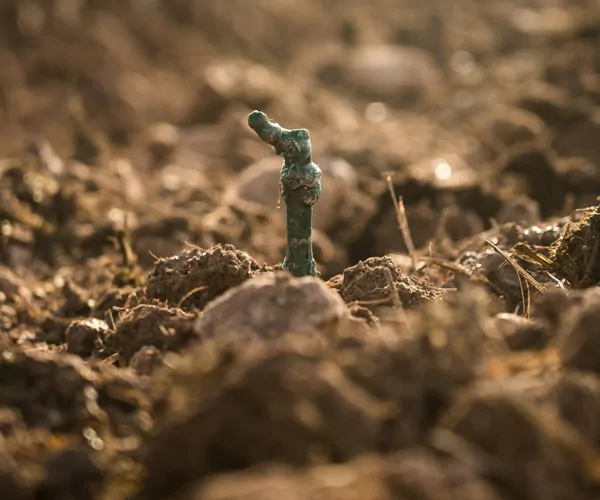
The landscape surrounding Cantine Lunae: marble, olive groves, Mediterranean brush and sea.
Vermentino and other native vines
Honouring tradition
Cantine Lunae’s work is guided by respect for tradition. Our goal is not innovation for its own sake, but to find new ways to develop the intrinsic characteristics of native vines without forcing nature’s hand. For this reason, all Lunae vineyards are cultivated without the use of herbicides and use only natural fertilizers. At harvest time, our grapes are handpicked and gathered in small crates. We believe that we must listen to and respect the natural rhythms of the earth, because only in this way can we harness the best that nature has to offer.
Albarola
Medium-small and compact clusters of white grapes. Disease and sea current resistant, perfect for exposed and ventilated hilly areas.
Vermentino Nero
Came close to extinction after the war, it was rediscovered towards the end of the 1980s. This vine has a unique character, often used in blends but also in its own varietal.
Pollera Nera
Its origins have never been precisely determined and its cultivation remains relatively rare. A red grape with large and compact clusters, round berries and fine, delicate skins.
Massareta
Black-fruited, it is also known as Barsaglina. Abandoned because it was thought to bring unpleasant aromas to wine, today its distinct flavours are more appreciated.
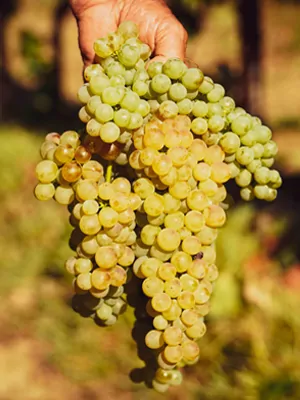
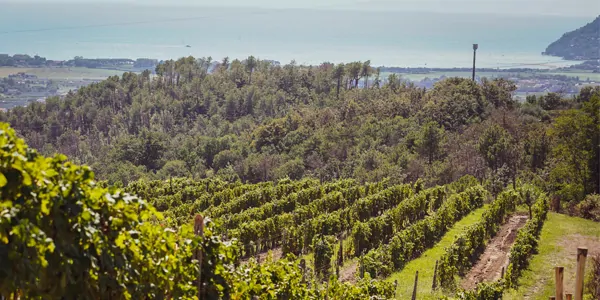
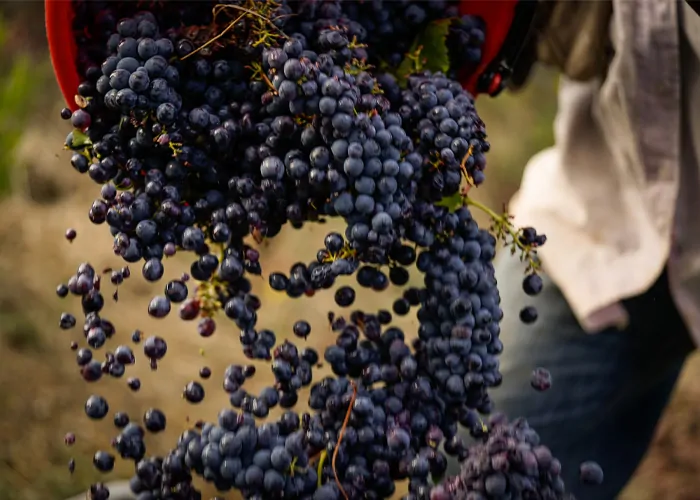
Our added value: native vines.
Terra Viva Lunae: preserving our rural environment
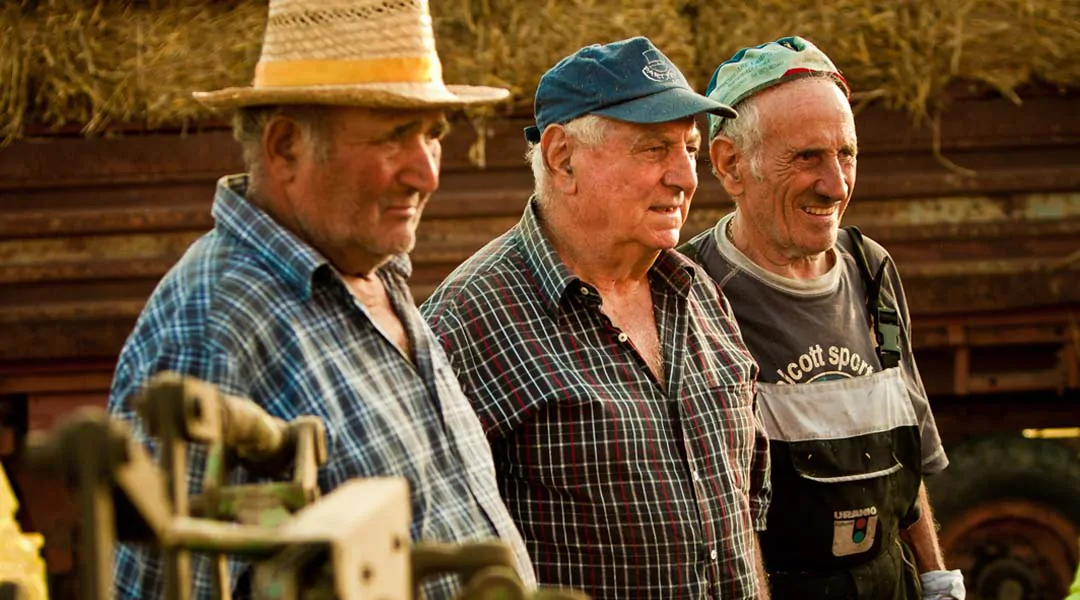

Sustainability, nature and ecology
